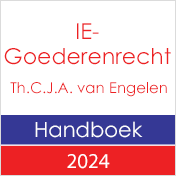
B9 10231. Europees Parlement, Committee on Legal Affairs: Draft report on Jurisdictional system for patent disputes (23 september 2011, rapporteur: Klaus-Heiner Lehne).
The proposals regarding the unitary patent protection and the language regime, currently under the legislative scrutiny of the Parliament and the Council, intend to do away with the existing fragmented patent system. The rapporteur is convinced that the envisaged creation of a unitary patent protection is inseparably linked to the establishment of a unified patent court. It seems appropriate that the Parliament as co-legislator on the two legislative proposals (zie: B9 9737 / Eenheidsoctrooibescherming) should express its views on the envisaged agreement.
The creation of the Court by international agreement is - particularly in light of the Opinion 1/09 of the Court of Justice - a viable and promising way to establish a coherent patent litigation system. The respect of the primacy and proper application of Union law by the Court should be ensured by providing for the possibility of preliminary rulings pursuant to Article 267 of the TFEU, infringement proceedings in accordance with Articles 258, 259 and 260 of the TFEU and by clarifying that the Contracting Member States should be liable for damages caused as a result of breaches of Union law by the Court. Furthermore, the proposed system would be situated within the judicial system of the Union, since Contracting Member States may only be EU Member States.
By relying on the existing structures of the patent court system of the Contracting Member States, a maximum of both quality and efficiency of proceedings can be achieved. The Unified Patent Court will also help to cut drastically the litigation costs because parties will no longer have to litigate in parallel in different countries. Studies show that the proposed litigation system would allow for substantial savings for European businesses.
(…) Qualification of judges is essential for the functioning of the patent litigation system. Besides patent law, judges should also have at least basic knowledge of antitrust law. In this way, judges will be more sensible to possible attempts of a party to misuse patents as a tool to abuse its dominant position on the market to the detriment of its competitors. Since patent disputes involve complex technical issues, the panels of the court should comprise technically qualified judges.
It is of utmost importance that parties are represented by lawyers with the necessary experience in both patent and procedural law. Patent attorneys not authorised to practice before a court of a Member State can play an important supportive role and should therefore be allowed to speak before the Court.
(…) Consequently, in case of counterclaims for revocation, the local or regional division should be given the possibility to refer the counterclaim to the central division and proceed with the infringement claim independently. In this way, undue delays regarding the infringement proceedings can be prevented.
After decades of failed attempts, a true Single Market for patents that can provide legal certainty and be internationally competitive is in reach. The Parliament should support this project.
Lees het rapport hier.



























































